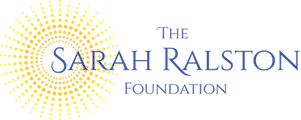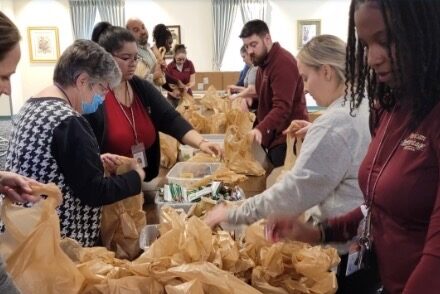Although Philadelphia’s total population has seen little growth, the proportion of older adults — especially those 65+ — is increasing. This makes the work of advancing equity for older adults even more essential. Nearly one in five Philadelphians (316,000 people) are over 60, and more than 20% live below the poverty line. Almost one in five speak a language other than English. Many struggle with the basics: 30% spend more than 30% of their income on housing, almost one-third live alone, and nearly one in five report difficulty living independently.
Economic hardship, language barriers, health inequities, and systemic discrimination don’t exist in isolation — they intersect to limit access to services, opportunity, and dignity.
“Advancing equity means more than expanding services,” says Heather Finnegan, Executive Director of The Sarah Ralston Foundation. “It’s about removing the barriers — cultural, economic, linguistic, and systemic — that stand between older adults and the resources they deserve. It’s about creating programs that are not only available, but accessible and affirming.”
Across the city, The Sarah Ralston Foundation’s Innovative Project Support grantees are designing programs that do just that. Their work reflects a shared belief: that all older adults, regardless of income, background, ability, or circumstance, should have equitable access to the resources, opportunities, and care they need to thrive.
SeniorLAW Center: Protecting Homes and Building Intergenerational Wealth
Stable housing is essential to health, safety, and financial security — yet older adults in Philadelphia, particularly Black and low-income homeowners, face growing threats like deed theft, tangled titles, and foreclosure. The SeniorLAW Center’s Homeownership Rights Project tackles these injustices head-on.
Through trauma-informed legal services, education, and advocacy, the project safeguards intergenerational wealth, helps families retain their homes, and prevents displacement that disproportionately affects communities of color. By protecting homeownership — often the single most valuable asset a family possesses — SeniorLAW Center is not just defending property rights. It’s advancing equity, stability, and the chance to age with dignity in one’s own community.
Caring for Friends: Sharing Food and Friendship Directly with the Community
Access to healthy food is a foundational equity issue — and for many older adults, distance, mobility limitations, and language barriers make that access nearly impossible. Caring for Friends is transforming how food support reaches those who need it most.
Through a hub-and-spoke expansion model, Caring for Friends brings food support directly into senior housing and community sites—eliminating the need for long trips to distant food pantries. Their programs feature multilingual volunteers and culturally responsive meals, reflecting the rich diversity of the older adults they serve. Each meal is thoughtfully planned to meet the nutritional needs of aging adults, with the understanding that healthy food supports long-term wellness and helps prevent disease. And with regular home visits and wellness checks, this model does more than nourish—it connects, bridging gaps in care and tackling inequities at their source.
ARTZ Philadelphia: Inclusive Creative Engagement for People with Dementia
Equity also means ensuring that older adults living with cognitive decline — and their caregivers — are not excluded from community, culture, and connection. ARTZ Philadelphia has built its mission around this belief, offering free, welcoming programs designed to meet people where they are.
From transportation support to sensory-aware design, every element of ARTZ programming is rooted in accessibility. Their programs celebrate cultural identity and emphasize inclusion, offering spaces where participants can express themselves, share stories, and feel valued. For many families, ARTZ is more than an arts program — it’s a lifeline that reduces stigma, fosters connection, and affirms that creativity belongs to everyone, regardless of diagnosis or circumstance.
VisionLink: Expanding Access and Independence for Older Adults with Vision Loss
Older adults experiencing vision loss often face compounded inequities, from inaccessible environments to systemic neglect in service design. VisionLink is breaking down these barriers through comprehensive training and adaptive technology support.
Their collaborative staff education program equips senior center and long-term care staff with skills to better serve older adults with vision loss or vision difficulty, including training in communication, sighted-guide techniques, and environmental adaptations. Select sites also receive assistive technology such as CCTVs and adaptive kitchen tools, transforming daily tasks from daunting to doable. Early outcomes are promising: at one partner site, 93% of trainees reported increased confidence in serving older adults with vision loss, and the model is now being replicated across the city.
For older adults — many of whom are Black/African American and/or living alone — these interventions aren’t just about access. They’re about dignity, independence, and inclusion in the spaces and services that shape daily life.
The challenges of advancing equity are vast — but so is the opportunity. When programs are built with equity at their core, they don’t just deliver services; they restore dignity, strengthen communities, and create lasting change.
“Our partners remind us that advancing equity is not an optional part of aging services — it’s the foundation,” says Heather Finnegan. “By meeting people where they are and designing programs that reflect their realities, we’re building a more just and compassionate Philadelphia for all.”
For more information, visit www.sarahralstonfoundation.org










